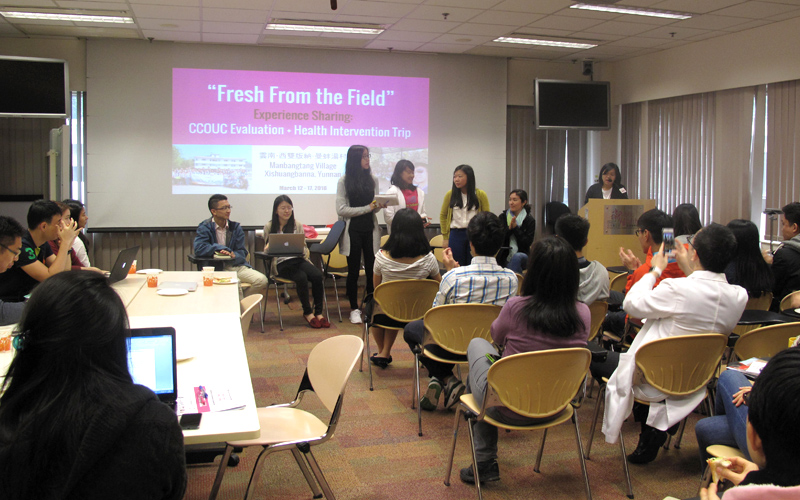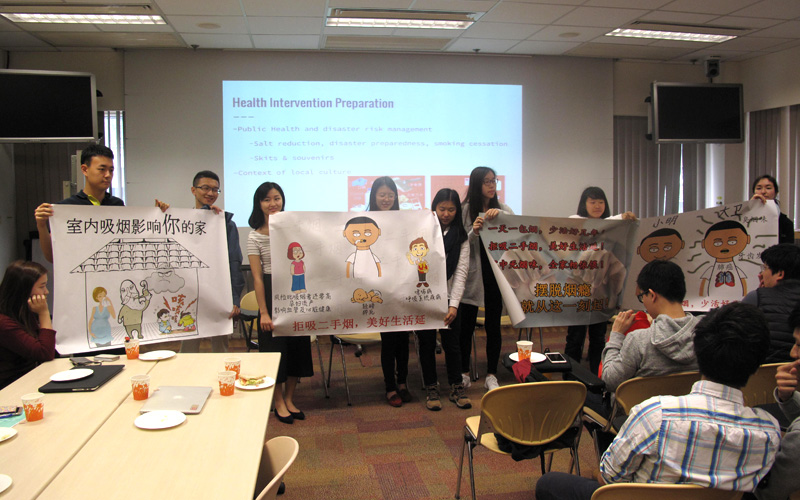A team of 22 student trainees from The Chinese University of Hong Kong (CUHK), The University of Hong Kong (HKU) and Harvard University undertook a CCOUC field visit to Manbangtang Village at Yunnan Province of China from 12 to 17 March 2016. To share fresh experiences and lessons learnt during this trip, CCOUC and the Centre for Global Health jointly organised a lunchtime lecture on 18 March 2016.
The sharing led by the student trainees comprised of various lessons learnt during the trip. The first lesson was the field etiquette and proper ways of interacting with villagers and facilitating health interventions learnt in a one-day training co-organised by CCOUC and Kunming Medical University in the beginning of the trip before the team entered the village.
The trainees have also acquired skills like interviewing with villagers and being cultural sensitive during the visit to Manbangtang Village, a rural village in Mengyang Township of Jinghong City, Xishuangbanna Dai Autonomous Prefecture. CCOUC had visited this site three times before as components of the routine project cycle: site selection, needs assessment and health intervention. The purpose of this finale trip was to evaluate the outcomes of previous interventions and to conduct an additional health intervention session. For the health intervention, messages on salt reduction, disaster preparedness and smoking cessation were conveyed to villagers through dramas, demonstrations and posters. Master classes for students were also delivered in the field by CUHK Faculty of Medicine academics including Assistant Faculty Dean Professor Vincent Mok, Emeritus Professor of JC School of Public Health and Primary Care Professor Sian Griffiths and CCOUC Director Professor Emily Chan, which have profoundly inspired the participants as well.
Overall, the trainees gained much insight from their hands-on experience when conducting the health intervention and evaluation programme. They expressed that it is an invaluable opportunity for them to conduct public health education in a rural community setting. Most of the trainees reiterated their aspirations to continue working towards improving the public health status in vulnerable and impoverished communities.

